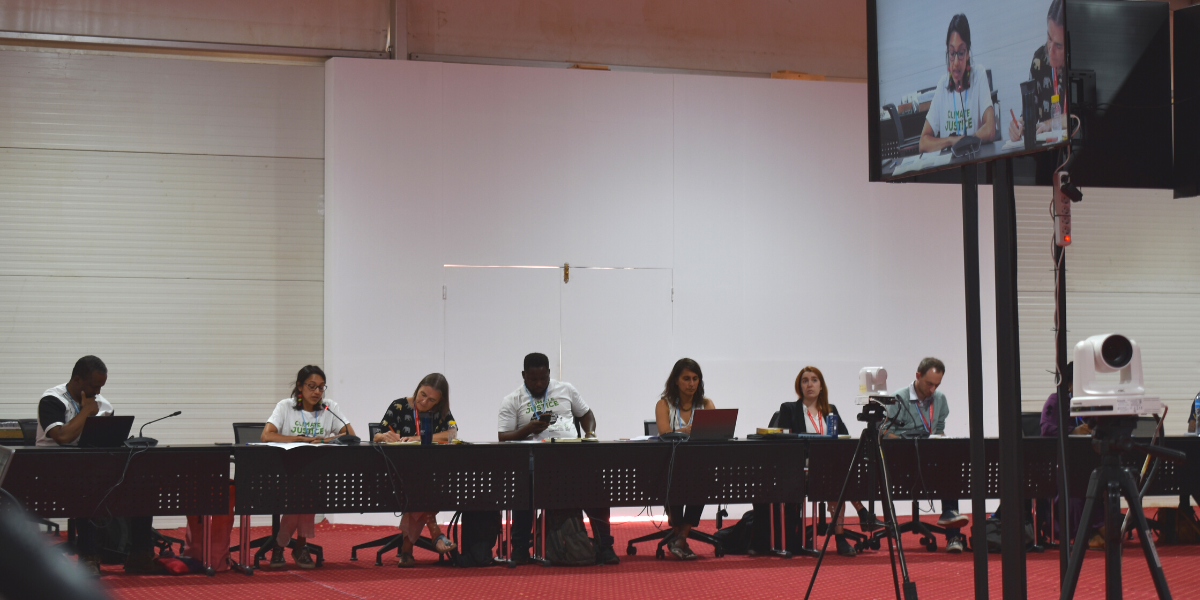During the United Nations Conference on Climate Change (COP27), CIDSE, the Maryknoll Office for Global Concerns and the Institute for Agriculture and Trade Policy (IATP) hosted the side event “Driving systemic change: Policy and finance for real zero solutions” to discuss the importance of transformative solutions in the agricultural sector.
The session took place, in Sharm El-Sheikh, on Thursday November 10. The event was moderated by Sophia Murphy (IATP). Speakers were Vincent Dauby (CIDSE), Shefali Sharma (IATP), Million Belay (AFSA), Kirtana Chandrasekaran (Friends of the Earth International), Colin Anderson (Vermont University), Jazmin Rocco Pedrassi (FARN) and Ubrei-Joe Maimoni Mariere (Friends or the Earth Africa).
The panelists shared their reflections around the drive towards net zero in agriculture and energy, and the alternative approach to select and finance climate actions that support the human rights of local communities and the restoration of ecosystems.
Moreover, they discussed transformative solutions and the implementation of effective projects in agriculture. At the same time, the specialists commented on the false solutions promoted within the framework of COP27 to mitigate or adapt to climate change, which, in many cases, are only focused on one aspect of the problem without taking into account the spectrum of impacts on communities, biodiversity and nature.
“For CIDSE, a false solution represents the interest of big companies. False solution perpetuates the biodiversity loss and does not address the real causes of the climate crisis. ” said Vincent Dauby, Agroecology and Food Sovereignty Officer at CIDSE.
False solutions are also often connected to questionable ways of being financed. As Kirtana Chandrasekaran of Friends of the Earth International noted:
“Carbon markets, which essentially what they do is allow big polluters, both corporations but also big polluting countries, to not reduce emissions but rather pay somebody in the global South to either plant a tree or take over their land or grab forests, grab oceans, to supposedly reduce or avoid emissions on their behalf”.
You can watch the full presentation below:

